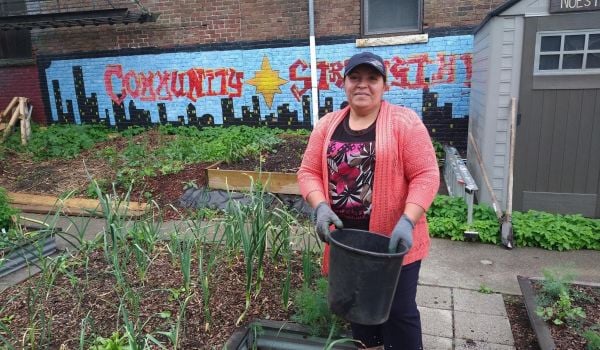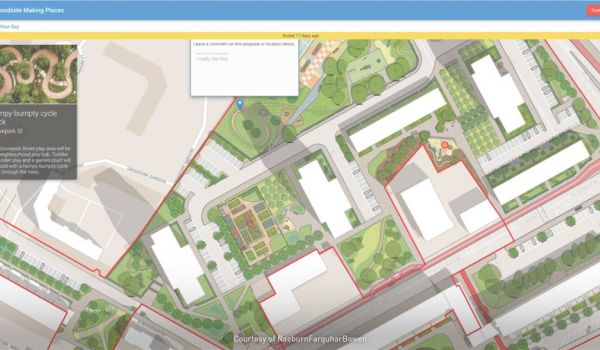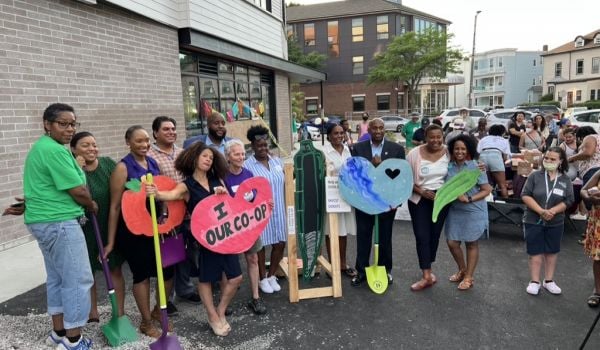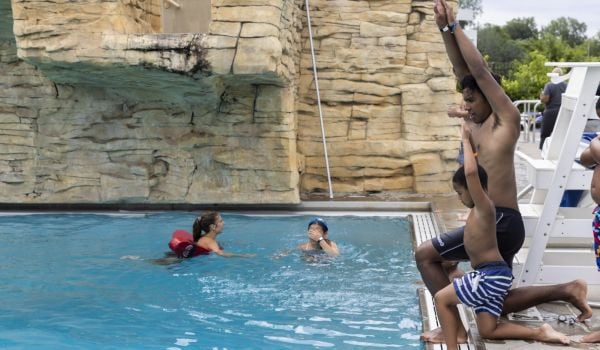What does a city sound like? The rattling of the subway passing by? The groan of a subway car full of passengers told there are delays ahead. Endless traffic jams. Or maybe it’s a jazz quartet playing its fourth set of the night, or a dance club booming deep into the wee hours of the morning. Or a Second Line marching down the street on a Saturday afternoon.
There are many genuine answers, and those answers very likely depend on who you are. Your reply may indicate something about your socioeconomic place in the city. The sound of a city matters. If care isn’t taken, sound could be used as a weapon to reinforce existing imbalances, like a racist criminal justice system.
Or imbalances in health outcomes. Erica Walker made noise last fall, as a Ph.D. student at Harvard’s T.H. Chan School of Public Health, when she released the 2016 Greater Boston Noise Report. She gave 11 out of 13 neighborhoods she studied a failing grade when it came to sound. It was a key step in her research into how sound affects health in cities. Interestingly, even though noise levels varied widely across the neighborhoods, three-quarters of the people Walker surveyed said they had trouble falling asleep because of neighborhood noise.
And now, her doctoral thesis turned in, Walker spoke with ScienceLine about what’s next for her.
“This project has turned into something that is beyond anything I could have ever imagined,” Walker told ScienceLine. The outlet reports that she has biked to 400 different spots, covering 3,000 miles, in Boston to wield her sensor and take noise surveys.
Walker said that she hopes her work will inspire cities to go beyond mere noise ordinances. Although ordinances are enforced by local police departments, little is known about “how the noise ordinances are followed and broken” and “the actual noise climate of the city,” like the prevalence and the distribution of urban noises, Walker said. (Live music hub Austin, Texas, has worked on more constructive ways to minimize noise complaints.)
In the future, Walker also suggests more research should be done to identify chronically loud areas, and then apply noise control practices such as planting trees and shrubbery.
ScienceLine reports that whether she’ll stay in academia or start her own noise-oriented business is still up in the air, but she wants to continue her work, making sure it remains up-to-date and relevant to the community.
Others have taken notice of the knowledge gaps around sound and the city. Last fall, researchers from NYU and Ohio State University began their own project to map the sounds of NYC.

Oscar is Next City's senior economic justice correspondent. He previously served as Next City’s editor from 2018-2019, and was a Next City Equitable Cities Fellow from 2015-2016. Since 2011, Oscar has covered community development finance, community banking, impact investing, economic development, housing and more for media outlets such as Shelterforce, B Magazine, Impact Alpha and Fast Company.
Follow Oscar .(JavaScript must be enabled to view this email address)
















